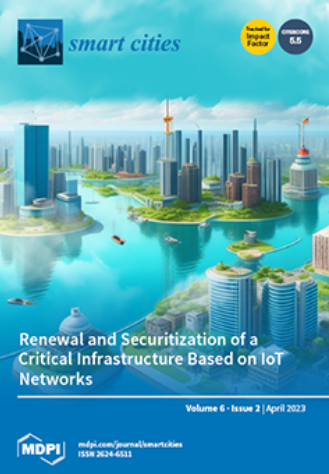智慧城市发展中的智能和环保解决方案——来自波兰的经验证据
IF 5.5
Q1 ENGINEERING, ELECTRICAL & ELECTRONIC
引用次数: 0
摘要
本研究进行了全面分析,旨在确定波兰城市智能环保解决方案(IEFS)的实施水平,以及阻碍其发展的障碍。基于280个城市的代表性样本,波兰IEFS的实施水平显然非常低。市政府代表指出,实施IEFS最常见的障碍是成本高、缺乏足够的资金以及缺乏对应用IEFS带来的好处的认识。然而,回归分析表明,IEFS的实施水平主要受城市人口规模和个人IEFS作为智能城市概念组成部分的看法的影响。研究还表明,实施IEFS的成本高昂,没有将其纳入当地发展战略,缺乏适当的法律法规,缺乏广泛的良好做法,以及居民对变革和新技术的抵制被视为障碍,这些都对具体IEFS的实施水平产生了重大的负面影响。此外,分析表明,将某些问题视为障碍并不妨碍这些解决方案的实施。在对研究结果进行讨论的基础上,提出了未来研究的相关建议和方向。本文章由计算机程序翻译,如有差异,请以英文原文为准。
Intelligent and Environmentally Friendly Solutions in Smart Cities’ Development—Empirical Evidence from Poland
This study presents a comprehensive analysis aiming to identify the implementation level of intelligent and environmentally friendly solutions (IEFS) in cities in Poland, and barriers impeding their development. Based on a representative sample of 280 cities, it was evident that the implementation level of IEFS in Poland is relatively very low. The most common barriers to IEFS implementation as indicated by representatives of city authorities were high costs, lack of adequate funds, and lack of awareness of benefits resulting from applying IEFS. Nevertheless, regression analyses showed that the IEFS implementation level was mostly affected by cities’ population size and perception of individual IEFS as integral elements of the smart city concept. It was also revealed that the high costs of implementing IEFS, the lack of their inclusion in local development strategies, the lack of appropriate legal regulations, the lack of widespread good practices, and the resistance of inhabitants to change and to new technologies perceived as impediments had significant negative effects on the implementation level of specific IEFS. Furthermore, the analyses demonstrated that perceiving certain issues as barriers did not hinder the implementation of such solutions. Based on a discussion of the results, relevant recommendations and directions for future research are proposed.
求助全文
通过发布文献求助,成功后即可免费获取论文全文。
去求助
来源期刊

Smart Cities
Multiple-
CiteScore
11.20
自引率
6.20%
发文量
0
审稿时长
11 weeks
期刊介绍:
Smart Cities (ISSN 2624-6511) provides an advanced forum for the dissemination of information on the science and technology of smart cities, publishing reviews, regular research papers (articles) and communications in all areas of research concerning smart cities. Our aim is to encourage scientists to publish their experimental and theoretical results in as much detail as possible, with no restriction on the maximum length of the papers published so that all experimental results can be reproduced.
 求助内容:
求助内容: 应助结果提醒方式:
应助结果提醒方式:


